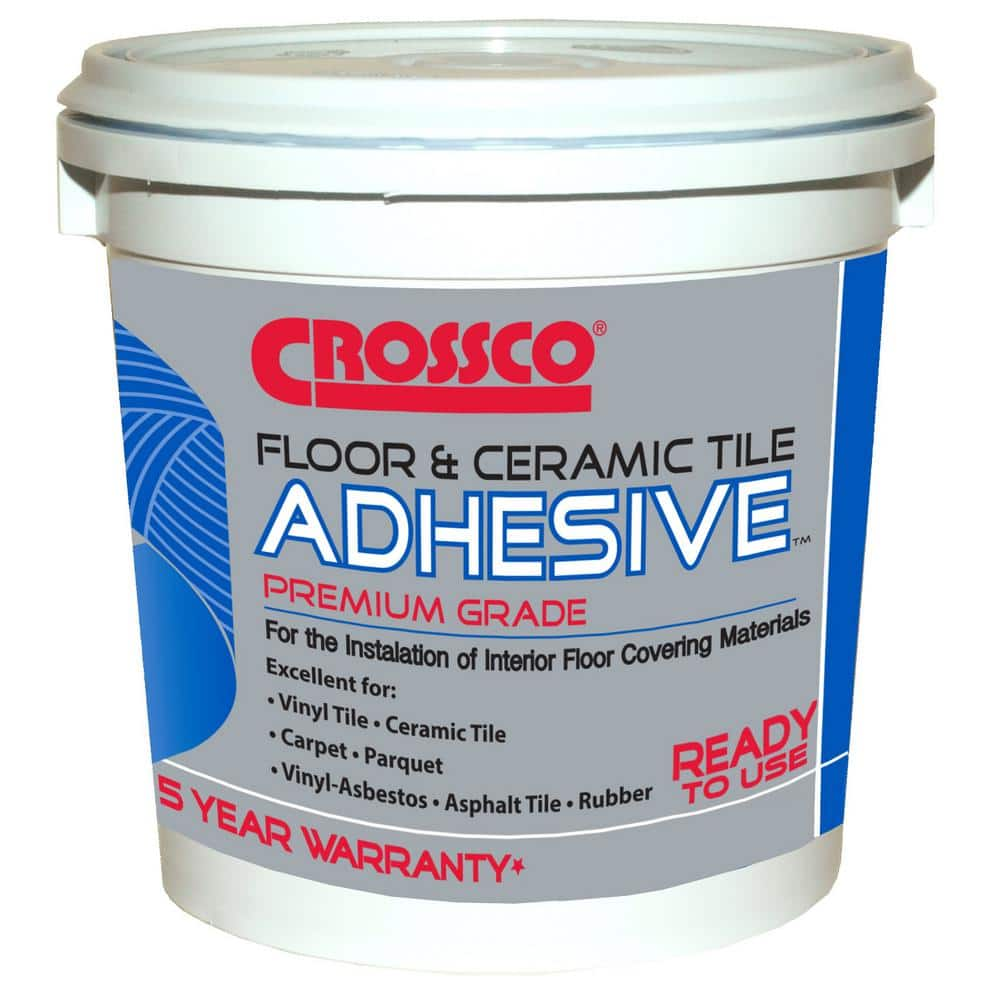Imagine walking into your dream kitchen, gleaming with beautiful, large-format tiles that create a sense of spaciousness and elegance. But beneath the surface of this aesthetic masterpiece lies a critical foundation: the right tile adhesive. Large floor tiles, those glorious expanses of ceramic, porcelain, or natural stone, place unique demands on their adhesive, demanding a product that can withstand the extra weight and potential for slippage. This guide will help you choose the best tile adhesive for large floor tiles, ensuring a strong bond that will last for years to come.

Image: acecarpetsltd.com
Choosing the right tile adhesive is crucial, particularly for large floor tiles. These tiles, often exceeding 12 inches in size, put immense pressure on the adhesive, and an inadequate choice can lead to a disastrous outcome: cracked tiles, loose grout, and compromised aesthetics. This article delves into the specifics of selecting the right tile adhesive for large format tiles, exploring types, factors to consider, and expert tips to ensure your floor remains beautiful and reliable.
Understanding the Challenges of Large Floor Tiles
Large floor tiles bring unique challenges when it comes to installation. Their weight and size demand a superior adhesive capable of handling the extra stress. The adhesive must be strong enough to ensure a secure bond, resisting the pull of gravity and minimizing the risk of tiles detaching over time. Also, the expansive surface area of large tiles can create issues with uneven drying and expansion, requiring a flexible adhesive that can accommodate movement without cracking or breaking the bond.
Types of Tile Adhesive: Which One is Right for Your Large Tiles?
1. Portland Cement-Based Tile Adhesives:
- The Classic Choice: Portland cement-based adhesives have been the mainstay of the tiling industry for decades. They are cost-effective, durable, and widely available.
- Pros: Strong bond, excellent water resistance, suitable for both interior and exterior applications.
- Cons: Less flexible compared to other options, requiring precise substrate preparation to avoid cracking.
- Best for: Heavy-duty applications, interior and exterior floors receiving moderate foot traffic.

Image: www.homedepot.com
2. Modified Thinset Mortar:
- A More Adaptable Choice: Modified thinset mortar is a variation of the classic Portland cement formula, enhanced with polymers.
- Pros: Improved flexibility, better adhesion to various substrates, allowing for slight movement without compromising the bond.
- Cons: Slightly more expensive than standard thinset mortar.
- Best for: Large format tiles, areas prone to some movement like kitchen floors or those subjected to temperature fluctuations.
3. Epoxy Tile Adhesives:
- The Ultimate Strength: Epoxy tile adhesives are the heavyweights of the adhesive world, offering the highest level of adhesion and strength.
- Pros: Extraordinary bond strength, impervious to moisture and chemicals, excellent for highly trafficked areas.
- Cons: More expensive than other options, require a specialized applicator, and can be more difficult to clean up.
- Best for: High-traffic areas, applications involving heavy loads, and locations exposed to extreme conditions like hot tubs or outdoor patios.
Key Considerations for Choosing the Right Tile Adhesive
1. Tile Material:
- Porcelain, Ceramic, or Natural Stone: The material of your tiles plays a crucial role in determining the appropriate adhesive. Porcelain and ceramic tiles typically require a strong but flexible adhesive like modified thinset mortar. Natural stone, known for its porosity, often benefits from a cement-based adhesive.
2. Substrate Type:
- Concrete, Hardwood, or Backerboard: The substrate onto which the tiles will be installed significantly impacts the adhesive choice. Concrete typically works well with most adhesives, while hardwood surfaces may require a specialized adhesive formulated for wood-to-tile applications.
3. Location and Traffic:
- Interior or Exterior: Interior floors generally require a less robust adhesive compared to exterior floors, which face the elements and potential temperature fluctuations.
- High or Low Traffic: High-traffic areas, like kitchens or entryways, necessitate a durable adhesive, while low-traffic areas like bedrooms may allow for a slightly less robust option.
Expert Tips for Successful Installation with Large Tile Adhesives
- Choosing the Right Adhesive: Consult with a professional tile installer or a reputable tile supplier to get expert advice on the best adhesive for your specific project. Their knowledge of the latest adhesive types and their suitability for various applications will ensure optimal results.
- Preparation is Key: Proper substrate preparation is vital for successful tile installation. Ensure the substrate is clean, flat, and free of debris. For problematic surfaces like uneven concrete, a leveling compound may be necessary.
- Follow Manufacturer Instructions: Always follow the manufacturer’s instructions regarding mixing ratios, application techniques, and drying times. These guidelines are crucial for ensuring optimal adhesive performance.
Best Tile Adhesive For Large Floor Tiles
https://youtube.com/watch?v=SDPVO4MZ784
Conclusion: Laying the Foundation for a Stunning Floor
Choosing the best tile adhesive for large floor tiles is a critical decision impacting the beauty and longevity of your tiled surface. By understanding the different types of adhesives, considering the factors specific to your project, and following expert tips, you can ensure a strong, resilient bond that will stand the test of time.
Remember, investing in a high-quality adhesive is not just about securing your tiles but also about building a foundation of confidence in the durability and longevity of your flooring. Start your journey toward a stunning and enduring floor, confident that your large tiles are firmly anchored in place.






